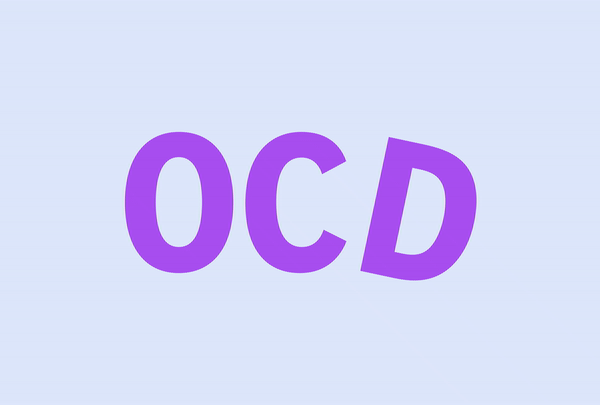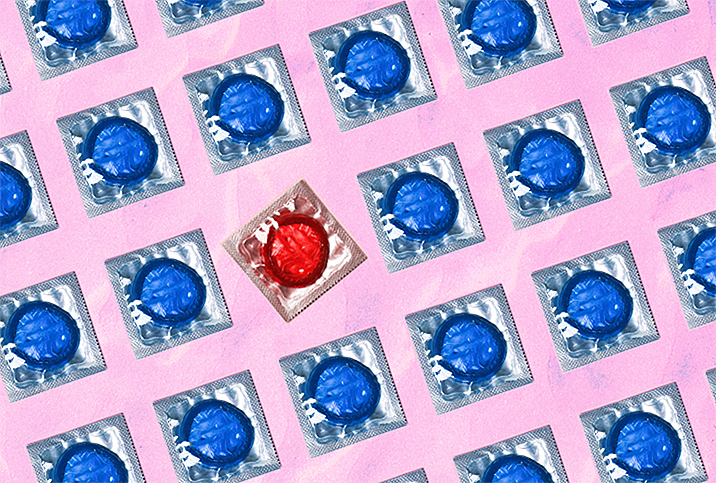The Risks and Misconceptions of OCD

There are several common myths and misconceptions associated with obsessive-compulsive disorder (OCD). For example, most people think everyone with OCD experiences two major types of symptoms: obsessive or intrusive thoughts and compulsions, or behaviors that result from those thoughts. However, specific symptoms vary, and the risks these symptoms pose for the individual consequently depend very much on the severity and type of symptoms.
It's estimated that obsessive-compulsive disorder affects about 2.3 percent of U.S. adults at some point in their lifetime. However, the range of symptoms and the degree to which they impair their life may vary significantly, according to the National Institute of Mental Health.
Research indicates that there may also be links between OCD and sexual dysfunction. Evidence suggests that obsessive-compulsive disorder can be associated with dissatisfaction with a partner and overall disgust with any sexual activity, a fear of having sex, a lower libido and overall worse sexual function. Hypersexuality can also be a symptom of OCD.
To learn more about the symptoms, risks and common myths and misconceptions about obsessive-compulsive disorder, we spoke to several experts who help OCD patients navigate their lives.
Common signs and symptoms
Rosalind Pistilli, L.C.S.W., a therapist and the executive director of Open Arms Counseling and Transition Center in Fort Collins, Colorado, said the most common symptom of OCD is intrusive thoughts.
People who are familiar with OCD have likely heard the term "intrusive thoughts" before, but what exactly does this entail?
"Thoughts are intrusive if they lack a trigger or are unwanted," Pistilli explained. "They do not have to be both to be intrusive, meaning thoughts can have a trigger and still be unwanted or thoughts can lack a trigger. Intrusive thoughts are much more prevalent in OCD than unwanted compulsion. In order for the thoughts to be considered OCD-related, they must be reoccurring thoughts, although the frequency of recurrence can vary."
Faisal Tai, M.D., a psychiatrist and the CEO of Psychiatry of Texas, based in Houston, noted that OCD can take various forms, including thoughts and behaviors.
"The Mayo Clinic states that OCD generates thoughts that are intrusive and cause distress or anxiety," Tai said. "Behaviors associated with OCD include washing, checking and arranging."
Anna Jackson, a psychotherapist based in London who specializes in cognitive behavioral therapy (CBT) and treating obsessive-compulsive disorder, shared a more detailed list of common symptoms of OCD, including the following:
- Anger
- Anxiety
- Continually seeking reassurance from others
- Distorted thinking
- Obsessive-compulsive behavior and urges
- Relentless, intrusive thoughts
- Self-doubt
- Short temper
Risks and causes of OCD
It's easy to see how some symptoms of OCD manifest in ways that detract from an individual's quality of life, but in addition to adversely impacting emotional health, OCD also poses physical risks to the individual, Pistilli said.
"Frequent handwashing can dry out skin, causing it to crack and bleed," Pistilli said. "[There can be] disruption in work, disruption to interpersonal relationships, increased stress and anxiety, panic attacks, loss of sleep. All of these things contribute to increased risk to the patient."
But there are additional risks of obsessive-compulsive disorder.
"Risks include depression, poor mental and physical health, withdrawing from friends and family, and low self-esteem," Jackson said.
Unfortunately, researchers still don't know exactly what causes OCD. There are some potential risk factors for OCD, including high levels of stress and an inability to cope with uncertainty, she added.
When to seek help for OCD and who to see
As with any physical or mental health problem or concern, it is important to seek help for OCD as soon as symptoms become apparent or distressing to the individual. The sooner support is sought, the sooner a proper diagnosis and effective treatment plan can be implemented to help curtail the more widespread and significant negative impacts of obsessive-compulsive disorder on your life.
William Anixter, M.D., a psychiatrist at CooperRiis Healing Community in Asheville, North Carolina, said deciding to seek help depends on whether your potential OCD symptoms are time-consuming and interfere with your quality of life.
"If someone's washing their hands for a minute or two each time they use the bathroom, it's unlikely to interfere with their life, but if it takes them 60 or 90 minutes to feel they washed properly and completely clean themselves, it can be very disruptive," he said. "And that certainly happens, and at that point, one should seek out treatment."
A variety of healthcare practitioners can be supportive resources on the treatment team for an individual with obsessive-compulsive disorder.
"Mental health professionals are able to treat OCD, and psychiatrists may choose to prescribe medication to manage the moods or anxiety associated with symptoms, but there is no medication that is effective to treat OCD itself," Pistilli said. "OCD is best treated using talk therapy—usually cognitive behavioral therapy—to manage the intrusive thoughts."
Anxiety vs. depression vs. OCD
It has only been in the past decade or so that the conversations around mental health have become somewhat more normalized, but there is still a lot of stigma surrounding disorders. Many people who struggle with mental health challenges do so in silence or just in the company of their very close-knit circle of loved ones for fear of judgment and prejudice.
Although the conversations surrounding anxiety and depression have begun to open the doorway for more open discussions about mental health, OCD still remains largely stigmatized and, therefore, undisclosed.
However, there's a lot of overlap between anxiety and OCD.
"Anxiety, depression and OCD are often interrelated and can trigger each other," Tai explained. "Consulting a mental health professional is the best way to understand and treat OCD and related issues."
"OCD is usually co-occurring with anxiety, and OCD will usually increase anxiety symptoms, particularly if the OCD creates disruption in quality of life for the patient," Pistilli added.
Obsessive-compulsive disorder's relationship with depression is typically less intertwined than with anxiety, but that's not to say people with OCD cannot suffer from depression.
"OCD does not usually occur with depression, but the side effects or impact of OCD can lead to depression if left untreated," Pistilli said.
Jackson agreed, noting anxiety and depression can be described as separate sides of the same coin.
"When the anxiety side is up, the depression side is down and vice versa," she added. "Anxiety is a fear about something unfavorable happening in the future. An acronym for fear that I like is 'False Evidence Appearing Real.' Our anxiety often boils down to the assumption or belief that 'If X happens, I won't cope.'"
Jackson said some anxiety is actually a good thing because it makes us do things we need to do—such as get up in the morning for fear that we would otherwise lose our job—but acknowledged that large quantities of anxiety are of no use and are a hindrance to our lives.
"OCD and anxiety together are very common. Individuals with high anxiety or high underlying anxiety often develop OCD, a set of rigid rules, as a way to cope and feel safe, particularly when they feel at their most unsafe and vulnerable," Jackson said. "My experience has led me to believe that anxiety must be present in order to have OCD."
On the other hand, she said depression can often be equated to feelings of hopelessness, such that a person dealing with depression often finds little or no joy in their usual activities.
"It would be uncommon to have OCD and depression at exactly the same time," Jackson said. "However, what is common is that once the OCD subsides, it is often replaced by feelings of depression. [That's] understandable when one's daily life consists of intrusive thoughts and urges."
Common myths and misconceptions
As with most mental health disorders, there are plenty of myths and misconceptions perpetuated about obsessive-compulsive disorder.
Jackson shared several of these falsehoods, including the following:
- OCD is about lining things up in a certain and particular way because the individual is very "anal."
- OCD is all about handwashing and hygiene.
- Common phrases are bandied about, such as: "I am OCD because I like to keep my room tidy" or "I need to be on time, otherwise, my OCD will go nuts."
Pistilli said the most common myth and misconception about OCD is that it only involves excessive handwashing or habits such as checking the stove.
"Sometimes it does, but OCD encompasses much more than just the stereotypical ideas of OCD that we have seen in popular media," she explained. "Important consideration must be given to removing the stigma surrounding OCD. OCD is much more prevalent than previously considered and is very treatable. Patients that experience OCD are able to lead very full and happy lives."
On a final note, Jackson said the effects of OCD are not all bad.
"It can provide the individual with incredible focus," Jackson said. "Used cleverly, it can be fine-tuned and executed for the individual's own gain, such as meeting life goals [that have been] set and for getting ahead at work."


















